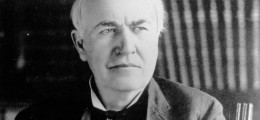“An Epic Win is an outcome that is so extraordinarily positive that you had no idea it was even possible until you achieved it. it was almost beyond the threshold of imagination and when you get there you are shocked to discover what you are truly capable of.” – Jane McGonigal
The problem with many teams I meet is that they have been conditioned to accept their processes and work environment as fixed. Time after time I hear them say, “we can’t change that…that will never be allowed…we tried to do that, but they said no…that isn’t possible,” etc. They embrace failure before they start. What’s worse, underlying these and similar sentiments is the heartbreaking fact that they lack confidence in themselves and their ability to positively affect change.
The online gaming industry has exploded in recent years, and according to Jane McGonigal, one of the reasons for the meteoric rise is the connection online games make with people on a deeply emotional level. Well designed games allow people to experience challenge, achievement, and feedback in ways reality does not. Through a series of progressively harder challenges and real time feedback, online games create an environment where participants are intrinsically motivated to push themselves past the threshold of their own imagination and achieve epic wins.
So how do online games motivate players to spend countless hours making mistakes and building skills…and more importantly, is it possible to create a similar environment with our continuous improvement processes? Here are a few of the keys to developing world-class online games that I believe are most relevant to leaders.
Provide an epic purpose – give them something worth believing in. If they don’t see the end goal as worthy of the struggle and pain of the journey, they will abandon the efforts at the first sign of failure.
Start small – to create the momentum of accomplishment, select ideas and improvements that take no more than 1 hour to complete and are completely in their control. The longer it takes to complete the first actions, the harder it is to create and keep momentum.
Build difficulty over time – like a good game, think about the difficulty of your improvements like levels in a game. Everyone starts at level one, and as they move up the levels through action and accomplishment, the difficulty and complexity of both the problems and the improvements increase. In each level, the goal is to have the difficulty be within reach of the player, but hard enough to cause them to struggle and grow as a change agent.
Give consistent real, time feedback – at each stage of the game, feedback is a critical and should be an immediate part of the experience. Through visuals controls, peer to peer recognition and management follow up, seek to provides ways for team members to know their progress at all times.
Make it social – create a collaborative support structure where both team members and team leaders are supported on their journey. Have team members work together on both suggesting and implementing ideas. Finally, manage the improvement process visually, so everyone can see, feel and experience the struggles and victories together.
If we are serious about effecting change, we must acknowledge that without the belief that we can create positive outcomes, it is impossible to create a culture where individuals and teams strive each and everyday to achieve epic wins. As Bill Strickland said, “we have to change the way we see ourselves before we can change our behavior,” and to change how we see ourselves we have to create an environment where teams create their own “winning streaks.” Online games do this by allowing teams to start small, level up, get real time feedback and create urgent optimism to inspire your people to go after their own epic wins. Only after we realize that good continuous improvement systems need to embed the elements of a good game will we consistently move teams from “praying to win, to hoping to win, to knowing they could win, to expecting to win.” (Gail Goestenkors)




[…] This post was mentioned on Twitter by Richard Hall and John Stepleton, Michael Martyn. Michael Martyn said: Inspiring People to Achieve Epic Wins: “An Epic Win is an outcome that is so extraordinarily… http://goo.gl/fb/yD2rl […]